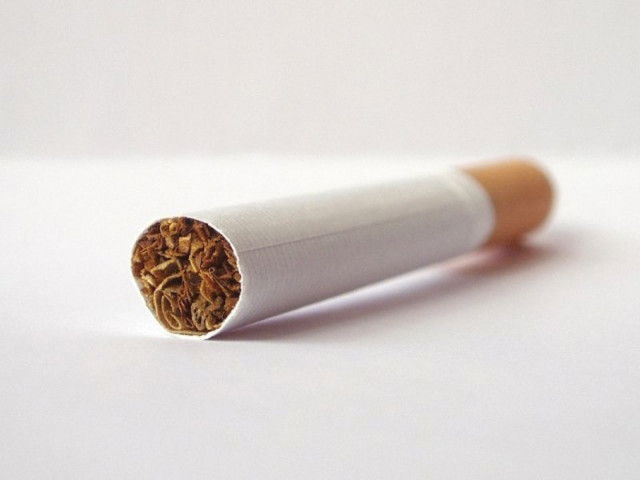Taxing away: Don’t blow up the proposal in smoke
Industry wants enforcement to discourage illicit trade.

With the government struggling to enforce its writ on illicit tobacco trade, high taxation only makes legal players uncompetitive. PHOTO: FILE
The finance ministry increased tobacco taxes to fulfill its commitment to the World Health Organization that had proposed to increase tobacco taxes by up to 70%. However, industry sources say higher taxes without proper enforcement only encourage illicit trade in Pakistan, already 25% of the total market.
“The government has fiscal constraints and we respect their decision regarding the increase in tobacco taxes,” said Hasaan Khawar, head of business development at Pakistan Tobacco Company – the largest player in the country.
Khawar, however, says the formal industry expects that the proposed increase should come hand in hand with stringent enforcement on tobacco smuggling and higher tax collection from those evading taxes in order to create a level-playing field.
Higher taxes will result in an increase in price, Khawar said, and consumers would switch to cheaper alternatives available in the market, adding that this is where tax evaders and smugglers, if not dealt with, will benefit.
The government, in the federal budget for FY2014-2015, proposed to increase federal excise duty (FED) on high-end cigarettes by 12% and low-end brands by 24%, which does not include the standard 17% general sales tax (GST).
The increase comes despite the fact that tobacco is already taxed heavily – in FY2013-2014, total taxes on tobacco (FED and GST) were imposed at 81% for high-end brands and 71% for low-end brands.
With the government struggling to enforce its writ on illicit tobacco trade, high taxation only makes legal players uncompetitive.
Most illicit cigarettes are priced much lower than their legal counterparts and generally do not adhere to mandatory public health regulations thus poised to lure new smokers and target impressionable youth, the official said who requested anonymity.
The purpose of high taxation is to make smoking expensive for the youth but the fact is stick sales (loose cigarettes) are 30% of the total cigarette sales thus killing the purpose, the official said.
The country has a huge porous border while illicit tobacco trade is almost one-fourth of the total market, according to the official. Under these conditions, a steep rise in taxation would not help, he said.
The tobacco industry is seeking increased and effective enforcement of laws to counter the menace of illicit trade in cigarette, which is growing at an exponential rate – thus undermining government fiscal and health objectives, according to industry sources.
The legitimate industry paid Rs76.5 billion in tax during FY13 while illicit cigarette trade cost the exchequer $275 million in that period.
Published in The Express Tribune, June 5th, 2014.
Like Business on Facebook, follow @TribuneBiz on Twitter to stay informed and join in the conversation.



















COMMENTS
Comments are moderated and generally will be posted if they are on-topic and not abusive.
For more information, please see our Comments FAQ